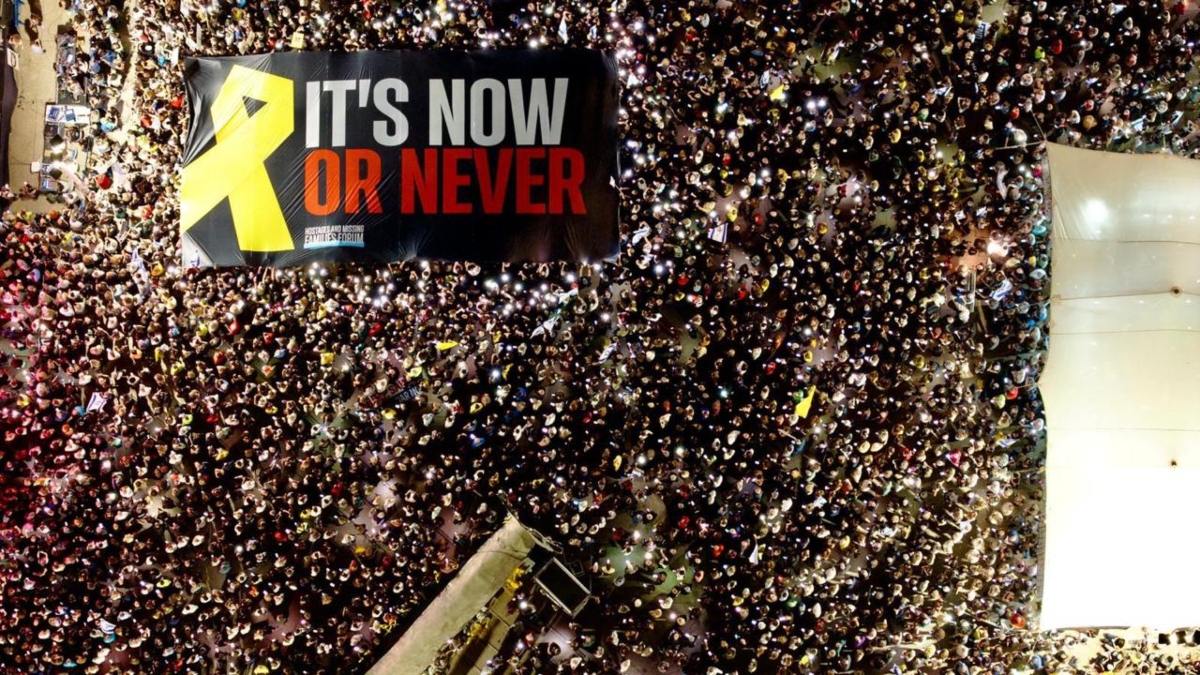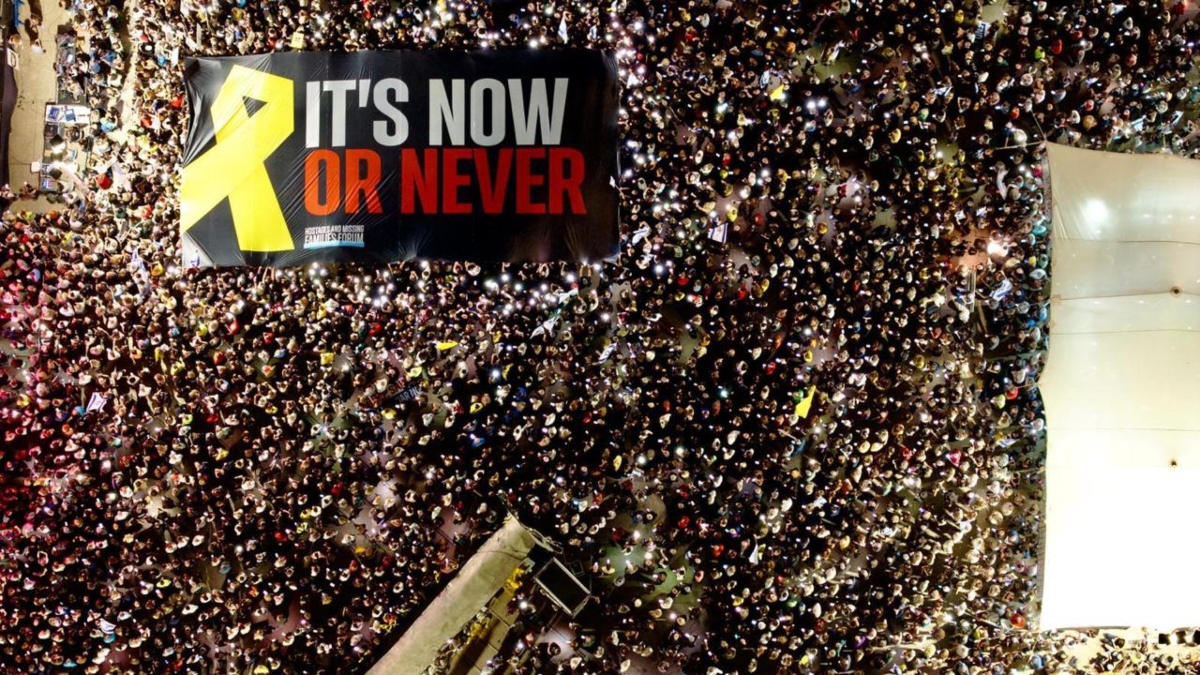October 5 has repeatedly marked turning points in history, a few of which we will take a look at as part of Firstpost’s History Today series.
On this day in 2017, The New York Times published its groundbreaking exposé on Harvey Weinstein, exposing decades of sexual abuse and triggering the global #MeToo movement.
It became a watershed moment that challenged entrenched power structures across industries.
Other events on October 5 include the passing of Apple co-founder Steve Jobs in 2011, the premiere of the first James Bond film Dr. No in 1962, and the Dalai Lama’s Nobel Peace Prize award in 1989.
The Weinstein Scandal breaks
On October 5, 2017, The New York Times published an investigative report that sent shockwaves through Hollywood and the wider world.
The article, written by journalists Jodi Kantor and Megan Twohey, laid out decades of sexual harassment and abuse allegations against one of Hollywood’s most influential producers, Harvey Weinstein.
This moment is now remembered not simply as the downfall of a single man, but as a cultural turning point that would fuel the rise of the global #MeToo movement.
Before the scandal broke, Harvey Weinstein was one of the most powerful figures in the entertainment industry. Alongside his brother Bob, he co-founded Miramax Films in 1979, which became known for championing independent films that went on to critical and commercial success.
Titles such as Pulp Fiction (1994), Shakespeare in Love (1998), and The English Patient (1996) shaped the reputation of Weinstein as a tastemaker and kingmaker in Hollywood.
By the early 2000s, Weinstein was running The Weinstein Company, continuing his dominance in film production and distribution. He was credited with influencing awards seasons and launching the careers of actors, directors, and screenwriters.
Yet behind the glamour of his public image, rumours about his misconduct had circulated for years — whispered but seldom reported openly due to Weinstein’s power and reach.
The New York Times article that appeared on October 5, 2017, was the result of months of investigation. Kantor and Twohey documented a pattern of allegations dating back to the 1990s.
Women described how Weinstein would lure them into hotel rooms or private meetings under the guise of professional opportunities, only to subject them to sexual harassment or coercion.
The piece revealed that Weinstein had reached at least eight confidential settlements with women, including actors and former employees. Among those who spoke out were actresses Ashley Judd and Rose McGowan, who described incidents of harassment.
The report detailed a “playbook” Weinstein allegedly used: offering young actresses roles, mentorship, or connections in exchange for sexual favours, and retaliating against those who rejected him.
His company was also shown to have facilitated some of these arrangements, with legal and financial tools used to silence victims.
The publication of the article marked the beginning of Weinstein’s rapid fall from grace. Within days:
The Weinstein Company’s board fired him from his position as co-chairman.
Prominent politicians, including Hillary Clinton and Barack Obama, who had previously received donations from Weinstein, publicly condemned his behaviour.
Hollywood institutions such as the Academy of Motion Picture Arts and Sciences (the Oscars’ governing body) expelled Weinstein, a rare move in its history.
The British Academy of Film and Television Arts (BAFTA) suspended him as well.
Weinstein initially issued an apology acknowledging that his behaviour had “caused a lot of pain,” but denied many of the allegations. As the scandal escalated, he began hiring prominent legal teams and PR crisis managers to defend himself.
What set this scandal apart was its ripple effect. Just days after the Times article, investigative journalist Ronan Farrow published an exposé in The New Yorker on October 10, 2017, further corroborating the allegations with even more testimonies, including claims of rape.
These reports unleashed a global outpouring of stories as women — and men — began sharing their own experiences of harassment and abuse.
The phrase #MeToo, coined a decade earlier by activist Tarana Burke, gained momentum on social media when actress Alyssa Milano encouraged survivors to use the hashtag.
Within 24 hours, millions of people worldwide had posted about their experiences.
The Weinstein revelations thus catalysed a reckoning across industries — from Hollywood to media, business, politics, and beyond.
Prominent men, including actors, journalists, and executives, faced similar allegations in what became known as the “Weinstein effect.”
While the scandal initially played out in the court of public opinion, it quickly became a matter of criminal law. Multiple jurisdictions began investigating Weinstein.
The most high-profile case was in New York, where prosecutors brought charges of sexual assault, rape, and predatory sexual behaviour.
In February 2020, after a high-profile trial that featured harrowing testimony from multiple women, Weinstein was convicted of third-degree rape and a criminal sexual act in the first degree.
He was sentenced to 23 years in prison.
In Los Angeles, he faced additional charges, and in December 2022, he was convicted again on three counts of sexual assault and sentenced to an additional 16 years.
Dozens of women also filed civil lawsuits against him and The Weinstein Company, leading to settlements totalling millions of dollars.
Weinstein continues to appeal his convictions, but his fall from power has been dramatic and seemingly irreversible.
The Weinstein scandal forced institutions to reckon with how they had enabled abusive behaviour. In Hollywood, production companies and studios began implementing new sexual harassment policies.
The Time’s Up movement, launched in early 2018 by prominent women in Hollywood, sought to provide legal support to victims of harassment and push for systemic change.
Awards shows and red carpet events in the years following often carried symbolic gestures, such as wearing black in solidarity with survivors. Conversations about representation, gender imbalance, and power dynamics in the film industry also took on renewed urgency.
The scandal even influenced storytelling itself — with films, television shows, and documentaries tackling the subject of abuse and power in industries beyond Hollywood.
Notably, the 2022 film She Said, based on Kantor and Twohey’s investigation, dramatised the process of bringing the Weinstein story to light.
The exposure of Weinstein’s abuses sparked a global reckoning with sexual harassment and workplace misconduct. In France, the hashtag #BalanceTonPorc (“Expose Your Pig”) trended, while in China, activists used #WoYeShi (“Me Too” in Mandarin).
The scandal also provoked debates about due process, trial by media, and the complexities of balancing accusations with legal standards.
Critics of the movement argued that it sometimes led to career-damaging consequences without formal trials. Supporters countered that silence and systemic barriers had protected perpetrators for too long.
In workplaces worldwide, HR practices and codes of conduct began evolving to highlight accountability and protection for employees.
Steve Jobs passes away
On October 5, 2011, the world lost Steve Jobs, co-founder and former CEO of Apple Inc, at the age of 56.
Jobs had been battling a rare form of pancreatic cancer since 2003 and had stepped down from his role as Apple’s CEO in August 2011, handing leadership to Tim Cook.
Jobs was more than a businessman; he was a visionary who reshaped personal computing, music, telecommunications, and consumer electronics. His insistence on sleek design and intuitive user interfaces transformed how people interact with technology.
From the Macintosh computer in 1984 to the iPhone in 2007, Jobs’ creations revolutionised multiple industries.
Global tributes poured in upon his death. Apple stores became impromptu memorials, with mourners leaving flowers, candles, and messages.
Leaders like Barack Obama hailed him as a pioneer who “changed the way each of us sees the world.”
The birth of Bond – Dr. No premieres
October 5, 1962, saw the world premiere of Dr. No in London, the first film adaptation of Ian Fleming’s James Bond novels.
Starring Sean Connery as the suave British spy 007, the film introduced audiences to the espionage icon who would become one of cinema’s most enduring characters.
Initially produced on a modest budget of $1 million, the film surprised critics with its success, grossing nearly $60 million worldwide.
It set the template for future Bond films: exotic locations, thrilling action sequences, gadgetry, and the iconic “Bond girl” archetype.
Though critics were divided at first, Dr. No proved commercially viable and launched one of the most successful franchises in film history.
With 25 official films spanning six decades, the Bond series has grossed billions at the global box office, influencing spy cinema and pop culture across generations.
October 5 is now celebrated annually as “James Bond Day” by fans worldwide, marking the debut of a cultural phenomenon that continues to reinvent itself.
Dalai Lama wins Nobel Peace Prize
On October 5, 1989, the Nobel Peace Prize was awarded to the 14th Dalai Lama, Tenzin Gyatso, in recognition of his commitment to nonviolence in the struggle for Tibetan autonomy.
The Nobel Committee highlighted his consistent opposition to violence, even under Chinese occupation of Tibet since 1950.
The award was highly symbolic during a time of global tension, as protests for democracy were being crushed in China earlier that year. It was seen as both recognition of the Dalai Lama’s spiritual leadership and a rebuke of Beijing’s human rights record.
For the Dalai Lama, the award elevated his global profile, strengthening international awareness of the Tibetan cause. He became a figure not only of religious significance but also of political resistance and human rights advocacy.
The Nobel Peace Prize cemented his place as one of the 20th century’s leading voices for peace and compassion.
With inputs from agencies


)

)
)
)
)
)
)
)
)



